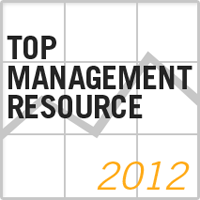In a little over 2 months, the fifth iteration of HRevolution will take place in Chicago on October 7 at the McCormick Place. Hotel rooms have been secured, and tickets have already been sold.
So, what's new? The agenda has started to be released. If you head to the Eventbrite page, you can see what some of the topics and who some of the speakers will be.
And, don't forget, after you register for HRevolution you get a whopping $600.00 discount off the HR Technology® Conference on-site rate. Look for the savings promo code at the bottom of your HRevolution confirmation email.
Check it out.
- Leave your comment • Category: #HR, #HRevolution, #HRTechConf
- Share on Twitter, Facebook, Delicious, Digg, Reddit
- 2 comments • Category: #8manrotation, commitment, HR, Penn State, sanctions
- Share on Twitter, Facebook, Delicious, Digg, Reddit
 |
| Is that PTO I see in the upper left? |
If you feel your career as a HR recruiter is going nowhere, why not go into....prepping "chicks" for sorority rush. Yesterday's New York Times featured three women who, after seeing the trials and tribulations their daughters went through, have put together a consulting firm called "Rushbiddies" to help prepare girls for that all important decision of which sorority to choose:
About 50 mothers and their “chicks,” as the Biddies affectionately call them, attended one of their two-day workshops in April ($100 a couple), complete with mock rush party, wardrobe hints and paperwork prep.
Also, featured was Rachel Lewis, author of “Recruitment 101: an Insider’s Guide to Sorority Recruitment.” In her e-book, she preps women with a number of critical questions:And there is a mound of it. The smart rushee, the Biddies advise, will have a résumé stressing community service, leadership, academics and teamwork, letters of recommendation from alumnae of each chapter, preferably on the campus in question, and reference letters.
Why should you choose sorority life?
What exactly is “sorority recruitment?”
- What does it mean to be a sorority sister?
- How is the campus impacted by sororities?
- What are the future benefits you will have as a result of being in a sorority?
How to prepare for the recruitment process?
- What is the process that you will go through?
- What is expected of you?
- What should you expect from the sororities?
I will also give tips that will give you an upper hand over the competition. Information like:
- What research should you do?
- How do you choose which sorority is right for you?
Recommendation lettersSubsitute "Sorority" for the name of your organization, and is it any different than what you would expect an applicant to be doing as they prepare to find a job? Would this book be much different than what you would find in the business/management section of Barnes & Noble?
Suggestions for conversation
- What are the they?
- Why are they so important?
- Where do you get one?
Your appearance
- What do you talk about?
- What are proper questions?
- What are some of the most important things to discover about the sororities?
- What should you wear?
- What can you do to stay comfortable throughout the process?
As much as I want to mock this whole thing, my guess is that the women who go through this preparation might actually be fantastic interviewees when it is time for the search for their full-time job.
- 2 comments • Category: #humor, #popHR, recruitment, sororities
- Share on Twitter, Facebook, Delicious, Digg, Reddit
One of my favorite movies is "Night Shift," directed by Ron Howard, and starring Henry Winkler, Shelley Long, and Michael Keaton (pictured above).
Keaton has been all too absent from movies the past few years or so (just check out his imdb.com resume), so I was intrigued to see a new interview with him on Grantland.com this afternoon.
It's a nice interview, and it's good to catch up with Keaton, but it also contains one of the more intriguing questions that you'll see (it even took Keaton aback):
(2) How about the most memorable telephone call of your life?
Michael: Wow. That's a really good one. Well, there's one that's not good, I won't talk about that one. Most memorable phone call … wow, that is really good. I have to come back to that one because I'm thinking, I'm remembering a lot now. Uh, you can't say the birth of your kid because I was literally there. Nobody had to call me.
Daniel: Any one life-changing phone call?An intriguing one to ask during a job interview, huh? Have you ever asked or been asked that one?
Michael: Well, yeah, one, unfortunately, I was informed of somebody really, really close to me, you know, was extremely sick.
Daniel: That's sort of the bad part of that question, I guess.
Michael: Yeah, because that's the truth, though. I guess I'll just answer you honestly instead of trying to be funny. Unfortunately that didn't happen all that long ago. That was a life-changer, that was literally a life-changer. That was huge. But there were happy ones — a lot of happy ones.
Daniel: Sure.
Michael: Boy, was that a great question, though. Have you asked that question before?
Daniel: No.
Michael: Boy, you can hang your hat on that one. You ought to ask that one a lot, because that really makes you think. I've never been asked that. That's rare, that there's a question I've never been asked.
Daniel: Well, I'm flattered.
Michael: Hang on to that one.
For me, the most memorable would be the news that our faculty personnel committee would be recommending to the President that I would be granted tenure. Of course, I had been traveling that day and missed it entirely when our Associate Dean was calling to deliver the good news. I thus learned about it on voicemail.
So, what's your answer to the question?
- 3 comments • Category: job interview, Michael Keaton, telephone call.
- Share on Twitter, Facebook, Delicious, Digg, Reddit
In 2001, five days after being hired at Notre Dame, George O'Leary resigned from the head coach position. Why? O'Leary stated he had played three years of college football and had a Master's Degree on his resume, but background checks showed it wasn't true.
Flash forward 11 years, and we have the case of former CEO of Yahoo Scott Thompson, who stepped down when it was learned he had made a false claim on his resume. Thompson claimed he received degrees in accounting and computer science from Stonehill College near Boston, but Yahoo's largest outside investor revealed earlier this month that the accounting degree was the only one he earned.
Now, we have an applicant running for one of the most important jobs in the world - President of the United States - who lied about his employment record. In today's Boston Globe...
Romney has said he left Bain in 1999 to lead the winter Olympics in Salt Lake City, ending his role in the company. But public Securities and Exchange Commission documents filed later by Bain Capital state he remained the firm’s “sole stockholder, chairman of the board, chief executive officer, and president.”
Given that O'Leary and Thompson could not retain their positions based on their resume transgressions, should Romney's fib eliminate him from consideration from the position? If a candidate lied on his resume as Romney appears to have done, would you hire him or her for your organization? What separates Romney from O'Leary and/or Thompson?Also, a Massachusetts financial disclosure form Romney filed in 2003 states that he still owned 100 percent of Bain Capital in 2002. And Romney’s state financial disclosure forms indicate he earned at least $100,000 as a Bain “executive” in 2001 and 2002, separate from investment earnings.
What say you HR peeps?
- Leave your comment • Category: #8manrotation, HR, lying, Mitt Romney, Notre Dame, resume, Scott Thompson, Yahoo
- Share on Twitter, Facebook, Delicious, Digg, Reddit
Been Galluped to death on engagement? Think you are committed to your work and organization?
Meet Marina Abramović, the first performance artist to have her work featured at the Museum of Modern Art (MoMA) in New York.
On July 2, HBO premiered "Marina Abramović: The Artist is Present," a documentary about her 2010 show at MoMA along with a retrospective, and "re-creation" of some of her performance art.
As a proponent of "ordealism,"much of her earlier work focused on pain and self-abuse:
- In Rhythm 10, using twenty knives and a tape recorder, she played the Russian knife game (featured in Aliens) where rhythmic jabs are made between splayed fingers. When she cuts herself, she picks up a new knife and begins again. When she has gone through all 20 knives, she listens to the tape recorder and tries to recreate the experience again.
- In Rhythm 0, she placed 72 objects (such as a rose, scissors, or a whip) that the audience was allowed to apply on her body. The show lasted 6 hours, and the audience soon fell into two categories - aggressors and protectors
- In Imponderabilia, she, and her collaborator Ulay, stood nude face-to-face in a doorway, and audience members must squeeze between them deciding which way to face.
For 77 days, 8+ hours a day, she sat impassively on a hard wooden chair, wearing a red, white, or blue gown, and stared at each person for as long as the person was willing to sit there, whether for a few seconds, or all day. At first there was a table between Marina and the audience member; later, the table was removed. Reactions ranged from bemusement to sadness to laughter (as well as a great Tumblr account - Marina Abramović Made Me Cry). MoMA put together an album on Flicker that has portraits of each person who sat across from her (though the documentary is much more moving).
So, you might think you are committed to your work, but, you are likely no Marina Abramović
- Leave your comment • Category: commitment, Engagement, Marina Abramovic, performance art
- Share on Twitter, Facebook, Delicious, Digg, Reddit
 |
| HR SEO Gold |
Yes, a movie about male strippers is the workplace movie of the year.
Its a perfect parable for these times. "Magic" Mike (Channing Tatum) is a budding entrepreneur working a roofing job, and stripping on the side with the hopes of raising enough capital to overcome his poor credit score and poor housing market to run his own custom furniture business. He meets Adam (Alex Pettyfer), a former college football player, who is down on his luck after getting into a fight with his coach and deciding college is not for him.
All the characteristics of a good workplace movie are there. Its got...
Recruiting - Magic Mike recruits Adam to work for the strip club.
Orientation - Adam is shown around backstage, meets his fellow employees.
- 4 comments • Category: Alex Pettyfer, career path, Channing Tatum, compensation, HR, Magic Mike, Matthew McConaughey, orientation, recruiting, stripping, Training
- Share on Twitter, Facebook, Delicious, Digg, Reddit










